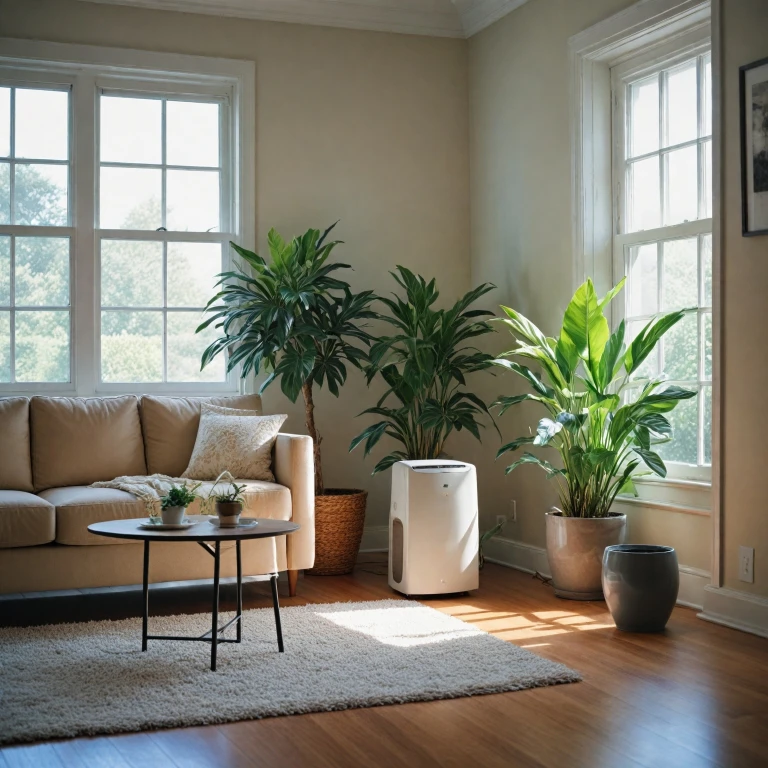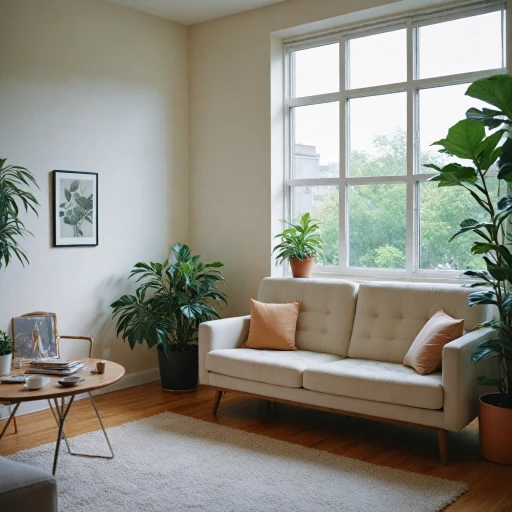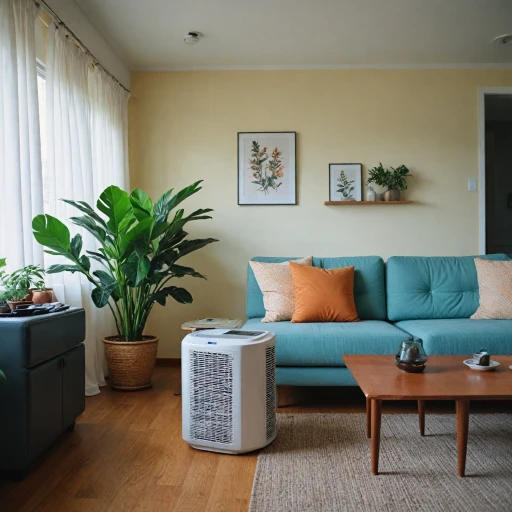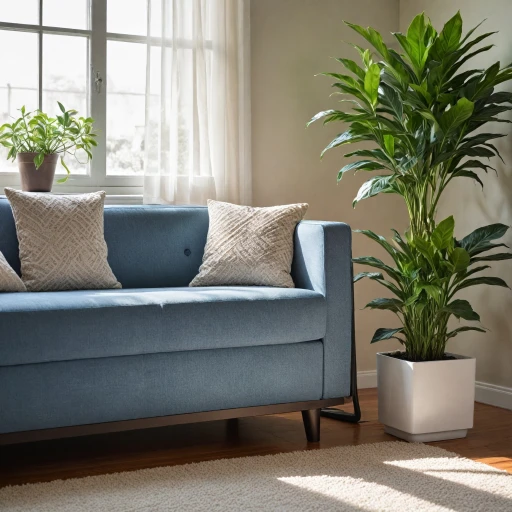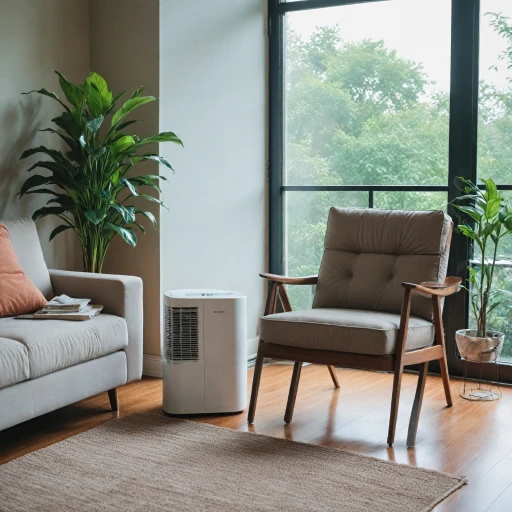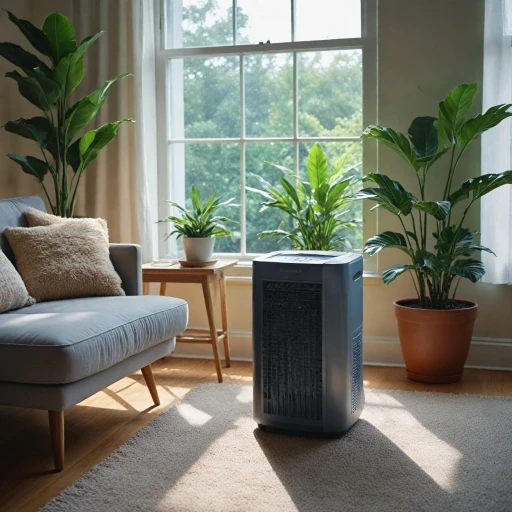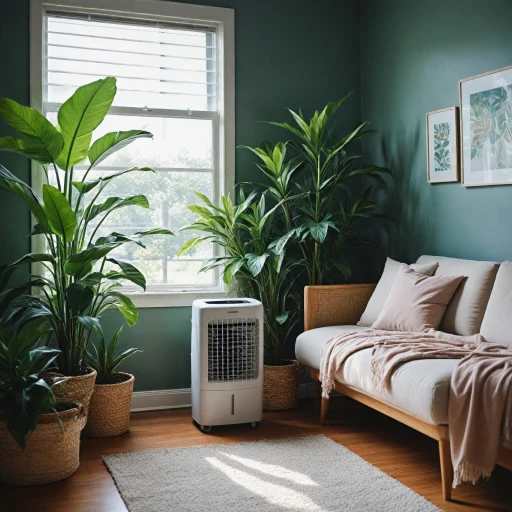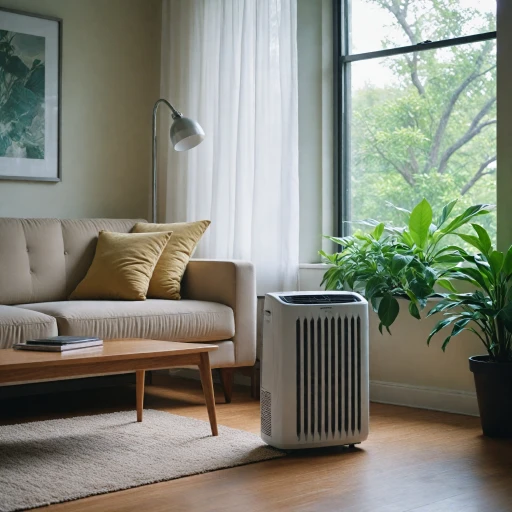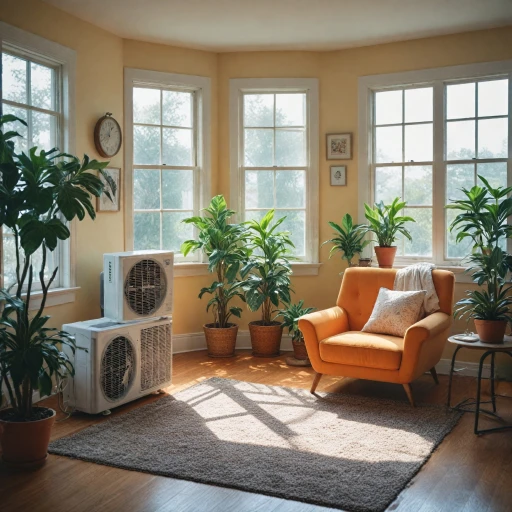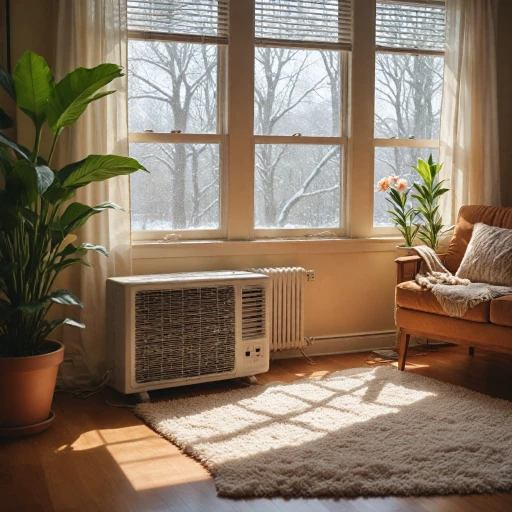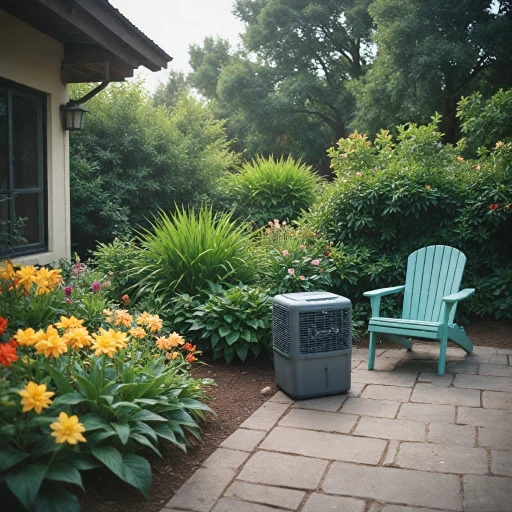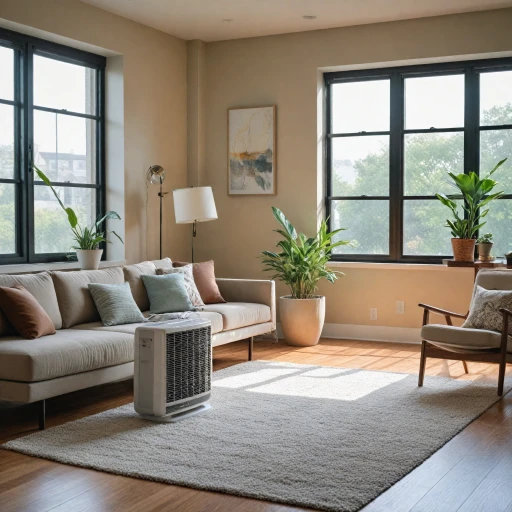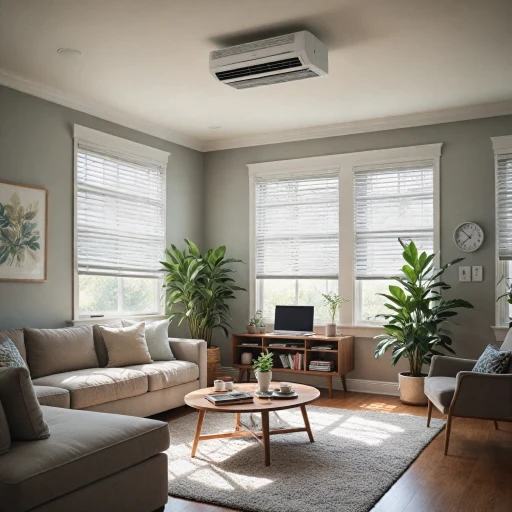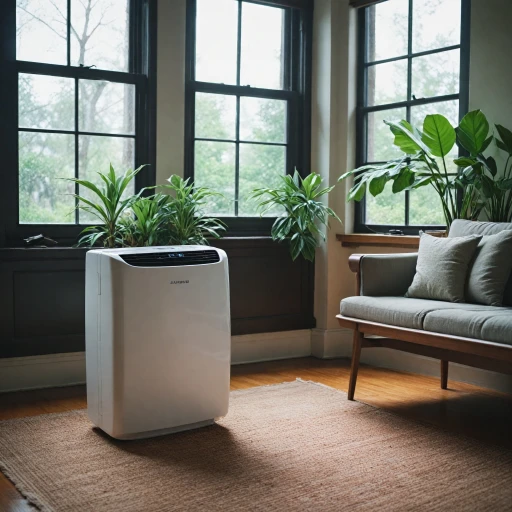
Introduction to Portable Air Conditioners
Exploring What Portable Air Conditioners Offer
Portable air conditioners have become increasingly popular due to their versatility and convenience. These units provide a practical solution for cooling specific rooms without the need for a permanent installation. Whether you're cooling a small office or campus housing room, understanding how these conditioners work can help you make an informed decision.
A portable air conditioner functions by drawing in warm air, cooling it through a refrigerant cycle, and then expelling the cooled air back into the room. With options like single hose and dual hose configurations, each type caters to different needs and space requirements. Unlike window air conditioners, portable ACs are easy to move and install, making them ideal for renters and anyone seeking flexible cooling solutions.
Wide-ranging Features and Practical Benefits
These air conditioners boast an array of features, from variable cooling capacities measured in BTU (British Thermal Units) to additional functionalities like a fan, timer, or remote control for convenience. On platforms such as Amazon, you'll find numerous options with varying BTUs to match the cooling requirements of different room sizes. Models with dual hose systems, such as those from Black & Decker, offer enhanced energy efficiency by preventing hot air from re-entering the room, while single hose units are easier to install and set up.
Simplified Installation and Maintenance
Installing a portable AC involves minimal effort. You'll need a window kit to exhaust hot air outside and, in some cases, a water tank or drainage system to manage condensate. Regular maintenance, including cleaning filters and checking the exhaust hose, ensures peak performance and longevity.
For those intrigued by non-refrigerant alternatives, understanding portable swamp air conditioners can provide additional insights into cooling solutions that may better suit your environment.
Key Features and Benefits
Prominent Features of Portable Air Conditioners
Portable air conditioners offer a range of features that cater to various cooling needs, making them a popular choice for many homes and offices. One of their key attributes is their mobility—you can easily move these units around to cool different rooms as needed. They typically come with wheels and handles, providing a convenient way to achieve comfort wherever you are.Cooling Capacity and Efficiency
The cooling capacity of portable air conditioning units is measured in BTUs (British Thermal Units). This is a crucial factor to consider as it directly affects how well the unit will cool your space. For example, a unit with a lower BTU rating is ideal for small rooms, whereas larger spaces require a higher BTU to efficiently circulate cool air.Hose Configurations
Portable air conditioners are available in two primary types: single hose and dual hose units. Single hose systems draw warm air from a room, cool it, and then expel the warm air outside through the same hose. On the other hand, dual hose systems use one hose to pull in fresh air from outside, while the other expels the warm air. Dual hose units generally provide better energy efficiency and faster cooling.Functional Features for Enhanced Convenience
Most portable units include additional features to enhance user convenience. Common options include a remote control for adjusting settings from a distance, programmable timers that allow you to set a cooling schedule, and built-in fan modes for times when you need air circulation without cooling. Many models also offer dehumidifying functions, making them versatile choices for different climates.Comparing Brands and Reviews
Brands such as Black Decker have been credited with delivering reliable portable air conditioners, each boasting different features based on consumer needs. Reading customer reviews, especially on platforms like Amazon, provides insights into user experiences regarding ease of use, reliability, and customer service quality.Eco-Friendliness and Water Management
While choosing the best portable unit, it is vital to consider its environmental impact. Energy efficiency ratings can guide you in selecting a model that consumes less energy. Additionally, portable air conditioners manage condensation in various ways—some units have water fill trays that need manual emptying, while others use exhaust hoses to expel water, minimizing maintenance efforts. Explore more about finding the perfect compact portable air conditioner here. Whether you're seeking advice on environmental considerations or unique features, our in-depth guide offers comprehensive insights to match your cooling preferences.Choosing the Right Portable Air Conditioner
Factors to Consider When Selecting a Portable AC Unit
Choosing the right portable air conditioner can make a big difference in ensuring a comfortable indoor environment. Here are some important aspects you should consider:
- Cooling Capacity (BTU): Pay close attention to the BTU rating, which indicates the cooling power of the unit. The larger the room, the higher the BTU required. For small spaces, a lower BTU rating might suffice, whereas larger rooms may demand a more powerful unit.
- Single Hose vs. Dual Hose: Single hose units draw air from the room to cool the condenser and then expel hot air through the exhaust hose. Dual hose models, however, use one hose to bring in outside air and the other to expel hot air, often resulting in more efficient cooling.
- Energy Efficiency: Check the Energy Efficiency Ratio (EER) or the Seasonal Energy Efficiency Ratio (SEER) to find an energy-efficient model, which will help reduce electricity costs over time.
- Installation Requirements: Consider how the unit will be installed. Although portable ACs don't require permanent installation, they still need to be properly set up with a window kit and exhaust hose. Ensure you have a compatible window for fitting the exhaust setup.
- Features and Controls: Look for modern conveniences like remote controls, timers, and adjustable fan speeds. Some units even feature smart technology that allows you to control them via an app.
- Noise Level: If you're sensitive to noise, you might want to check the decibel rating to ensure the unit won’t disrupt your indoor comfort.
- Water Drainage: Some portable air conditioners require manual draining of accumulated water, while others feature self-evaporative technology, recycling water to improve efficiency.
- Brand and Customer Reviews: Well-known brands often provide better customer service and reliability. Reviews from verified buyers, perhaps on platforms like Amazon, can give insight into real-life user experiences.
These factors are crucial for ensuring you select the best portable AC unit for your specific needs, allowing you to enjoy a cooler, more comfortable indoor environment.
Installation and Maintenance Tips
Installing Your Portable Air Conditioner Effectively
Setting up a portable air conditioner may seem daunting, but with a few straightforward steps, you can ensure efficient cooling for your room. Whether you purchased your unit from a popular retailer like Amazon or a local store, these guidelines will help you maximize your portable AC experience.
Selecting the Right Spot
Your choice of location plays a crucial role in the performance of your portable air conditioner. Ideally, position it near a window for the exhaust hose to vent hot air outside. Make sure the area is clear of any obstacles to facilitate easy air circulation. Keep in mind that a dual hose unit may offer improved energy efficiency compared to a single hose model, as it draws in room air to cool and expels hot air.
Proper Ventilation Setup
- Window Installation: Ensure the window kit fits securely to avoid leaks and drafts. Follow the manufacturer's instructions to fit the exhaust hose correctly, ensuring it's taut and free of kinks.
- Exhaust Hose Maintenance: Regularly inspect the hose for any signs of wear or blockages. A well-maintained hose facilitates optimal energy usage and cooling capacity.
Water Management
Most portable air conditioners have a built-in system for collecting condensate water that accumulates during the cooling process. Depending on your model, you may need to occasionally empty the water tank or set up a continuous drain option. Ensure the drainage is working smoothly to maintain the unit’s functionality.
Routine Maintenance and Care
- Filter Cleaning: Regularly clean or replace filters to ensure the unit delivers cool air efficiently. Clogged filters can compromise performance and air quality.
- Component Check: Pay attention to the fan, remote control, and other components. Functional components ensure the longevity and best performance of your unit.
- Customer Service and Support: Refer to your user manual for troubleshooting or contact customer service for assistance with complex issues.
Black Decker and Other Brands
Brands like Black Decker offer detailed manuals to help with installation. Always refer to the specific instructions provided for your model to optimize settings for cooling efficiency.
Common Challenges and Solutions
Addressing Common Issues in Portable Air Conditioning
Portable air conditioners can be a relief during hot months, but users might encounter some common challenges. However, understanding these issues and knowing how to address them can ensure your unit works efficiently all season.- Inadequate Cooling: One frequent complaint is the unit’s inability to sufficiently cool a room. Ensure the portable air conditioner's cooling capacity, often measured in BTUs, matches the room size. A unit that is too small won't cool effectively. Also, check for any obstructions in the exhaust or intake vents that might be restricting airflow.
- Excessive Noise Levels: Portable ACs can sometimes be louder than expected. If noise is an issue, ensure the unit is on a stable surface, as vibrations can cause rattling. Additionally, opting for models with a quieter fan setting can help reduce disturbance.
- Managing Water and Humidity: As portable air conditioners cool, they also reduce humidity by collecting water. This water must be periodically emptied or managed with a drain hose, especially in humid environments. Some modern units have self-evaporative features that minimize the need for manual draining.
- Exhaust Hose Configuration: Proper placement of the exhaust hose is crucial for optimal performance. The hose should be as short and straight as possible to efficiently expel hot air from the room. If installation is challenging due to window design, consider window kits or adjustable panels to create a tight seal.
- Dual vs. Single Hose Systems: Issues can arise with both configurations. Single hose units might struggle with energy efficiency as they can draw in warm air. Dual hose systems, while often more efficient, require two separate exhaust openings. Evaluate your room’s layout to determine the best system.
Environmental Impact and Energy Efficiency
Environmental Impacts and Optimizing Energy Use with Portable ACs
Owning a portable air conditioner can significantly impact both the environment and your energy bills. Understanding how to mitigate these impacts while maintaining effective cooling is paramount.- Energy Consumption: Portable air conditioners can vary in their energy efficiency. The cooling capacity, often measured in BTUs (British Thermal Units), is a primary factor determining energy consumption. Units with higher BTUs are capable of cooling larger spaces but require more power. It's crucial to choose a model that aligns with the size of your room to avoid unnecessary energy use.
- Efficient Features: Modern portable ACs often come equipped with energy-saving features such as programmable thermostats, dual hose designs, and remote controls. These features help regulate usage and therefore conserve energy. For instance, a dual hose system typically cools more efficiently than a single hose model because it reduces the amount of warm air re-entering the room.
- Eco-friendly Considerations: While portable air conditioners are more convenient, they can also produce unwanted carbon emissions if not used appropriately. When a single or dual hose system expels hot air through a window, little traces of carbon monoxide are naturally released, albeit safely and minimally when the system is functioning properly. Regular maintenance can ensure your unit operates efficiently and safely.
- Water and Refrigerants: Many portable ACs use water-evaporative technology to cool air, offering more environmentally-friendly options. However, one must keep the water reservoir filled. Conversely, traditional AC units use refrigerants that might impact the ozone layer if they escape.
- Sustainable Usage Practices: Opting for Energy Star-rated models can ensure a balance between effective air conditioning and lower energy bills. Additionally, efficient management of fan settings and maintaining the exhaust hose integrity can cut down on energy wastage.

